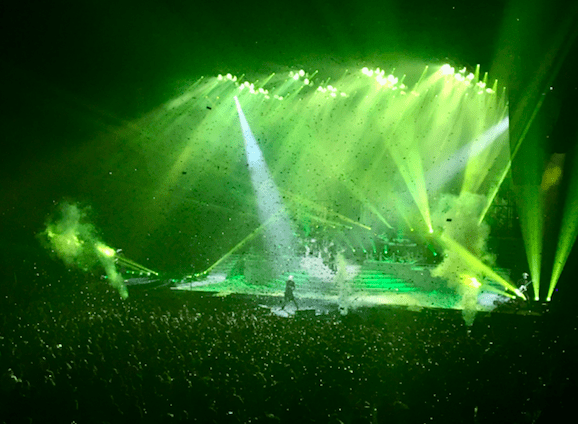Oh, what I would give to be back in the pit of a dive bar waiting for an opening act to start the show.
It’s now been over a year since bars and venues alike have closed their doors in Canada. Live concerts seem like such a thing of the past — it’s almost hard to imagine a time where bars could be filled to the brim with rockers screaming so close to one another.
From rock and metal acts such as Slipknot, Tool, and Lacuna Coil, all the way to Green Day and the highly anticipated My Chemical Romance reunion tour, alternative musicians have been cancelling their tours left and right from as early as February 2020 in the interest of public safety. In the pandemic-era of metal and hard rock, big bands have redefined their music scenes by reimagining the limitations of performance, while attempting to keep connected to both the art form and their fans.
For a community and profession that is so reliant on in-person performing, touring, and fan support, the livelihood of the industry has been ‘on the rocks’ to say the least.
Social media — and the achievements of live streaming — has proven to be an asset in working through the metal music lockdown for North American artists. In March of last year, Metallica announced their free Metallica Mondays live-streamed concerts, with many bands now following suit in this format. Bands such as Steel Panther and The Struts have even been working their ways back to performing live, announcing drive-in concerts where the fans can watch from their vehicles.
But how have local bands, fans, and venues in Toronto fared in the hard rock-lockdown? Will they be able to pick up where they left off once the virus has simmered, or has the pandemic done irreversible damage to the scene, forever changing the way we get to rock?
For those about to rock: Toronto’s community
Canada’s hard rock and metal are often overshadowed by the musical powerhouse scenes of the United States and United Kingdom. But with hard rock and heavy metal Canadian bands such as Steppenwolf, Anvil, and Toronto’s own Rush — and with looking into provincial specific movements such as the Quebec early death-metal scene — Canada’s heavy musical identity, while maybe lesser known, is hard to ignore.
Now let’s get this out of the way; metal is more than just guttural screams and head-bangingly long hair. Within the rock and metal scenes there are tight-knit communities, centred around solidarity and passion for the movement. From the outside looking in, there can be a false idea that metalheads are violent or aggressive, stemming from the intense music they enjoy.
But just as any art form will go to show you, the message and tempo of the music doesn’t always reflect the values of the person in the pit.
For Connor McCann, third-year Media Arts student and president of the Rock and Metal Association at York, these shows provide a warm sense of comfortability and familiarity, that even if he doesn’t know any at the concert, “as soon as the first band starts playing, it just feels like another home.”
Whether it be punk, rock, or metal, alternative music scenes are built through community — and with the age of social media, connecting with fellow metalheads has never been more accessible.
York’s Rock and Metal Association was founded in 2018 by McCann and Vice-President Spencer Chadderton, a third year History major and English minor student, after they posted on York affiliated Facebook pages looking for students with similar tastes in music. Chadderton says that their meeting, and the eventual formation of the club, was rather coincidental.
“As to why I was drawn to participating in and founding the club, that comes from a couple reasons,” McCann says. “The greater part of it comes from wanting to create a means of connecting the rock/metal community at York and to introduce people to each other. Another part of it comes from my own thoughts of what I wanted as a rock and metal fan (which was that I wanted to meet others) and with it being in my first term at York I had no idea where to do that — so I decided to try and make a club.”
“What I love about the scene is the openness you can experience with other metalheads,” says Chadderton. “It makes me feel wanted and welcomed, and shows are always going to be a good time whether I started the night knowing them or not.”
Jonathan Bean, singer and bassist for local rock band MAS notes that the sense of community that comes with live performing is what is so essential to the scene, including that the ideas coming from the underground actually act as a source of inspiration for their music.
“There is a tangible sense of belonging and rightness when performing alongside other like-minded musicians, especially when performing in a dive bar or other such venue. There is a drive and a passion to progress and excel— to push harder and faster than ever before,” explains Bean.
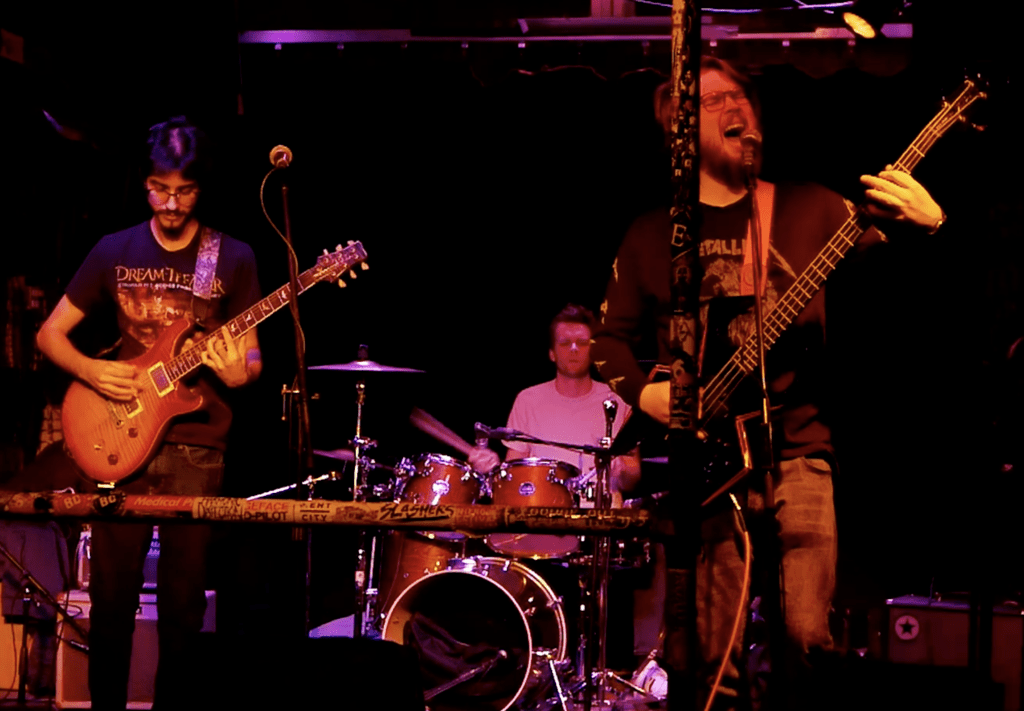
MAS performing. From left to right: Hamza Habib, Bennett Blundell, Jonathan Bean. (Photos Courtesy of MAS) 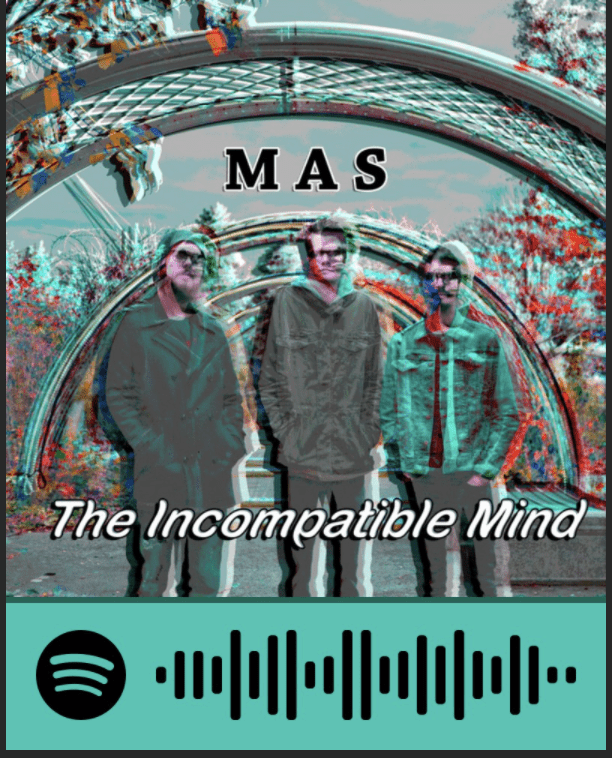
Nowhere to rock
In speaking with metal and rock fans/musicians here in Toronto, there is an unspoken agreement across the board that local bars are truly the backbone of the community.
Toronto has no shortage of badass bars that act as home to these bands and their fans, with Sneaky Dees, Cherry Cola’s, Bovine Sex Club, and Lee’s Palace being just a common few. Even York’s own Absinthe Pub has made its name in the rock and metal scene.
Canadian bars and taverns have seen a 48 per cent sales drop in the past year. Roughly 64 per cent of the live Canadian music industry is at risk for closure, with the city having seen many independent Toronto venues already close their doors for good. As a result, many bars and Toronto venues have been turning to patron funding, launching GoFundMe’s and reaching out to the community to help keep them afloat.
Lee’s Palace is a Toronto rock and punk music institution, who have hosted an array of artists from underground local and international bands to legends such as Nirvana and Foo Fighters. They too have had to temporarily close their doors, now taking on live streams to fill some of the performing spaces.
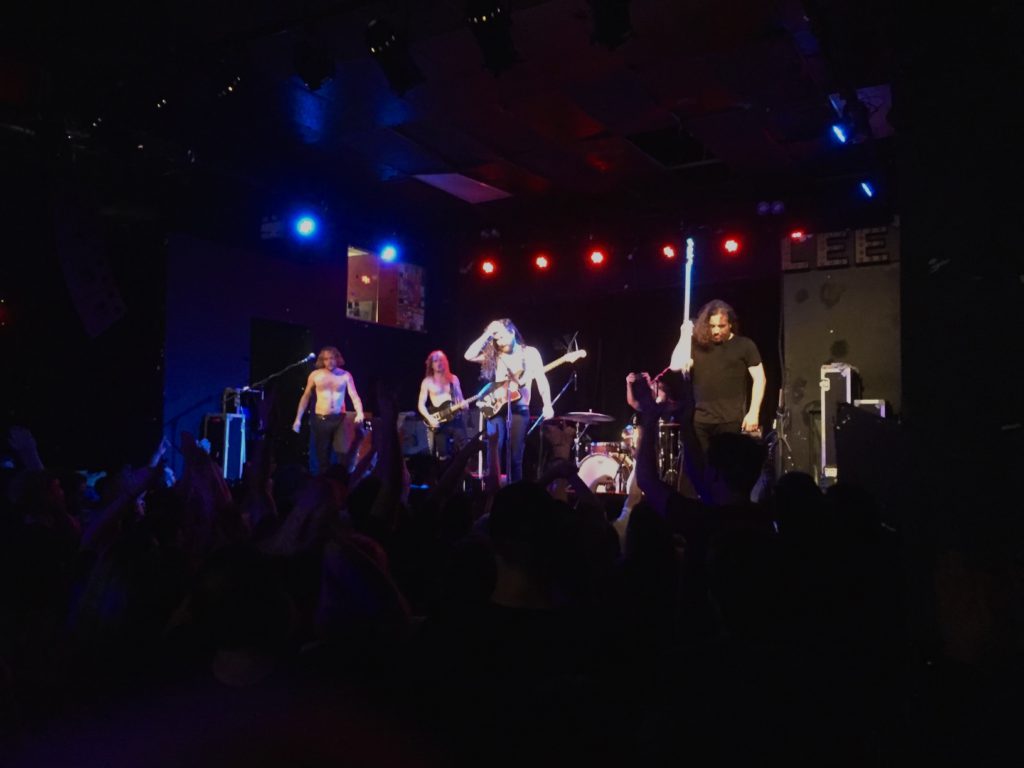
But as Bruce Bennett, Lee’s Palace’s manager details, the constant changing of government requirements to reopen doors is leaving independent businesses confused and funneling money.
“They tell us we can open if we include seating, put up plexiglass barriers, add a whole host of protocols and then once we have made the capital investments, they change their requirements and close us again,” he says.
“We are not against doing what is necessary to protect our patrons, artists, and staff, but we can’t afford to put money out with no return, especially for a year.”
Bennett Blundell, drummer for MAS adds that people should be worried about the threat of closing venues. “If nobody is going to do anything about it, I think we can expect to have a very different and limited live music scene in Toronto,” he says.
This fear is stagnant in independent venues across Canada, with reportedly 90 per cent at risk of closure as a result of the pandemic.
Even York’s own student faculty-run Absinthe Pub in Winter’s college, an on-campus alternative music staple for students, has had its door closed since early March 2020. Boyan Demchuk, Winter’s College Council president, notes that without a year’s income, it would be difficult for any business to survive.
“We’ve been lucky enough to scrape by so far this year through a lot of hard work from our management board, but it hasn’t been easy,” Demchuk says. “We hope to open come fall, should things with the virus settle down and it be safer for our customers — keeping in mind and following all of the most up to date health and safety guidelines.”
Backstage Pass: Meet the local artists
For many local rock and metal bands in the GTA area, the pandemic has uprooted their fanbase from in person live concerts, to social media, and remote promises of returning to the stage.
So just how have some of these artists coped with the total live show shut down?
Cigar Club: Formed in 2016, eclectic alternative rock band Cigar Club was used to playing plenty of pre-pandemic live gigs all over the underground rock scene in Toronto and its surrounding cities. Since the new social distancing laws have been put in place, however, the band hasn’t been able to practice together for the past six months. Drummer Tyler Booth notes that during these times the band is trying to remain proactive, “writing individually and actively looking for jam spaces for when everything cleared up,” so they can get back to “doing what they love.”
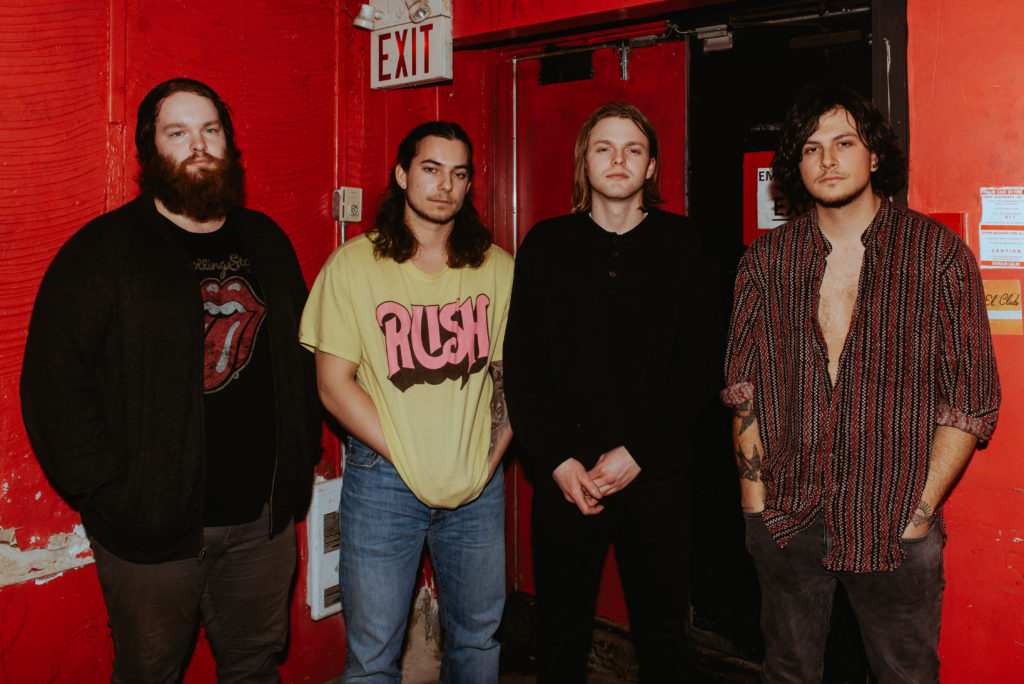
Cigar Club’s Jeff LeFort (Bass guitar/vocals), Tyler Booth (Drummer/vocals), Trevor Coughlin (Lead vocals/rhythm guitar) and Dan Amato-Gauci (Lead guitar/vocals). 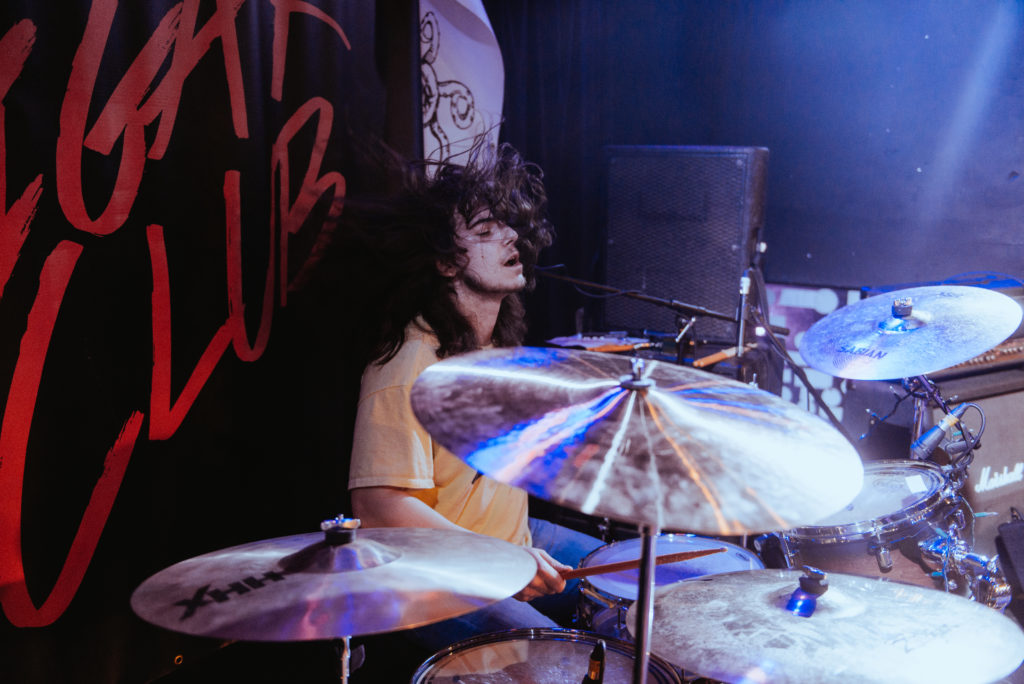
(Photos Courtesy of Daniel Dorta)
Before safety restrictions were enforced in 2020, the band was able to record a majority of their debut album at Union Sound Studio in Toronto, with Booth noting that the only positive effect the pandemic left on the band was their ability to review and reflect on what they had created.
“This reflection actually birthed the inspiration to include another song (“Like White Flats In Winter”) on the album. That’s probably the only positive effect the pandemic had on our recording, other than that it was just terrible to schedule time in any studio since everyone was trying to do the same thing,” Cigar Club says of their debut album Day, Now, which releases May 2021.
MAS: Formed recently in 2019, MAS — also known as Masbandtrio — are known for their classic rock and metal covers, often performed at local bars such as Absinthe Pub. Their first album, The Incompatible Mind, was released in December 2019 just a few months before COVID-19 would take over the country.
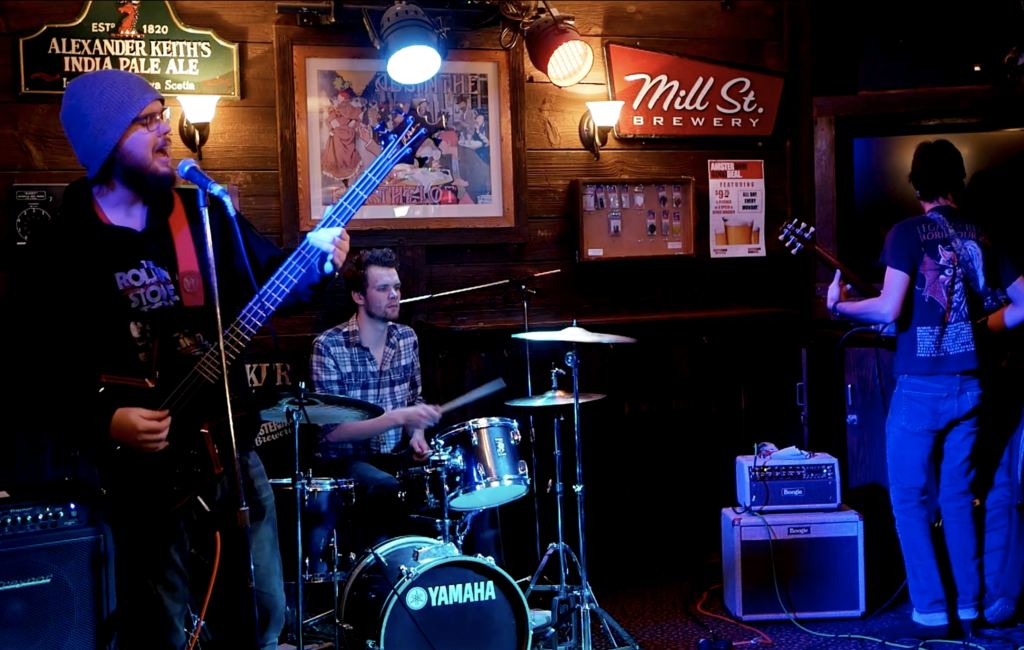
Hamza Habib, MAS’ guitarist, notes that because of the pandemic, they weren’t able to perform their new material and become as “acquainted” as they would have liked with the local bar scene. Habib also explains the difficulties that come with their positions not only as musicians, but also as full-time York students.
“So far we have a single in the works, but it has been hard to commit large amounts of time to recording, writing, or cultivating our social media presence since the three of us are full-time students reaching the end of our university careers.”
Napoleon: Napoleon’s style has their roots in punk, alternative rock, and post-hardcore, with Jon Elmaleh on vocals/guitar, Nick Mokrzewski on guitar, Michael Mihalic on bass, and Eitan Garazi on drums. Before the pandemic hit, singer Elmaleh says they jumped at any opportunity to play, performing with such bands as Ready the Prince and Heart Attack Kids.
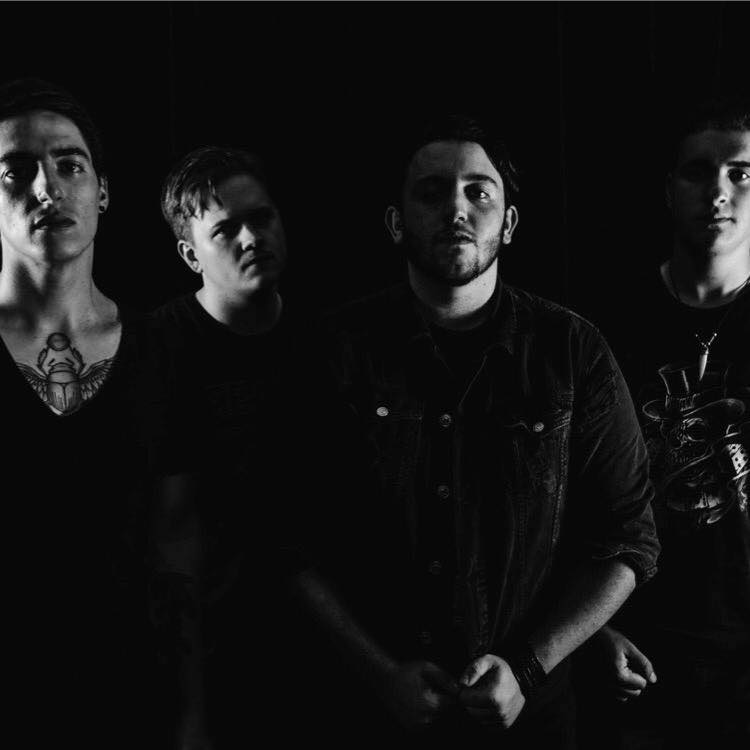
Still of Napoleon band, and shot of singer Jon Elmaleh and Nick Mokrzewski on guitar. (Courtesy of Michael ‘Crusty’ Amaral) 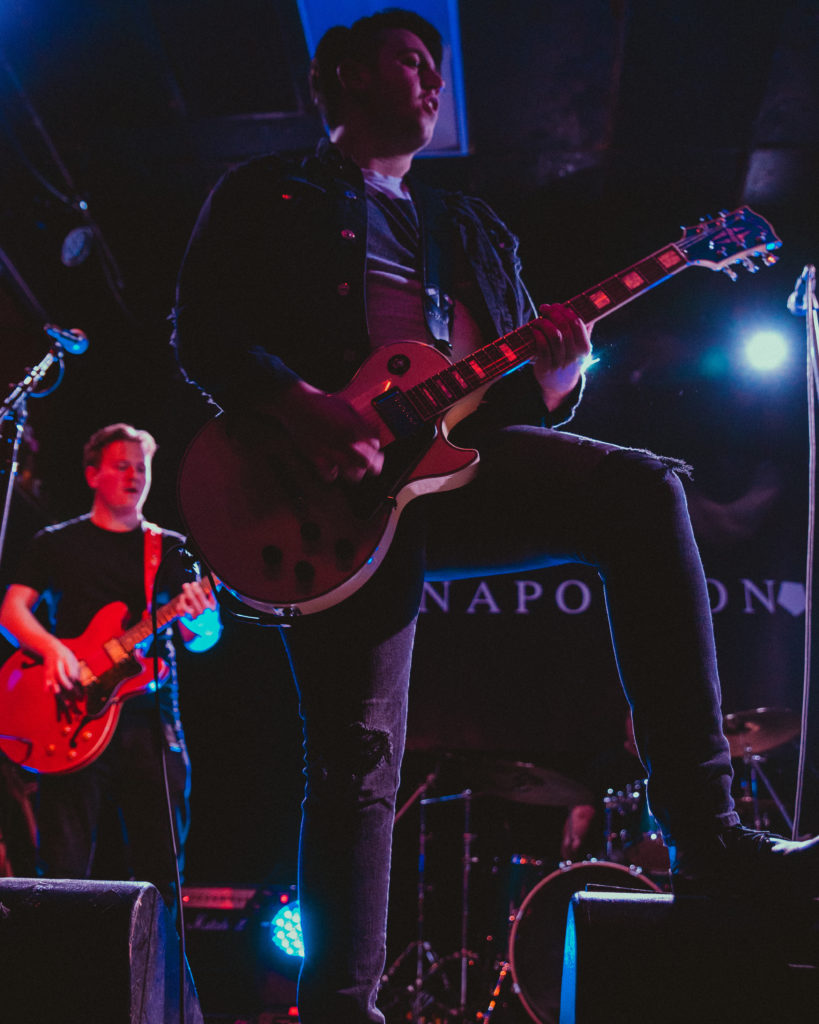
(Courtesy of Adam Nightingale)
As COVID-19 hit, both Napoleon’s Canadian summer tour and the production of their first full-length album had to be put on hold. The band has been finding new ways to reach their fans and produce during the lockdowns, including re-recording their older songs and releasing them on a monthly basis. According to Elmaleh, Napoleon has also adapted to the livestream format.
“The coolest one livestream in my opinion was the second one we did in July, where we partnered with Stranded Fest from Toronto and performed a charity set to raise money for BLM, and only covered songs by a band called PUP. We also had charity shirts and other merchandise and raised a solid amount of money.”
The summer of 2020 also saw the trend of socially distanced concerts, which Napoleon took part of this past August. Elmaleh notes that while it was cool to perform live and watch the audience be cautious and respectful, it was still a peculiar sight to see.
“Everyone had to sit the entire time, we had contact tracing and masks until you were at your seat. The seats were spread very far apart, which was odd cause the show was at max capacity (which was only 50 people spread out on a huge outdoor patio), yet looked totally empty.”
The Slime: “The Slime is a hardcore punk band with influences from other genres such as thrash metal and noise rock,” defines Slime bassist CD. Going on their fifth year, the current line up for The Slime is Derek on drums, Robert on guitar, Andy MC on vocals, and CD on bass and backing vocals.
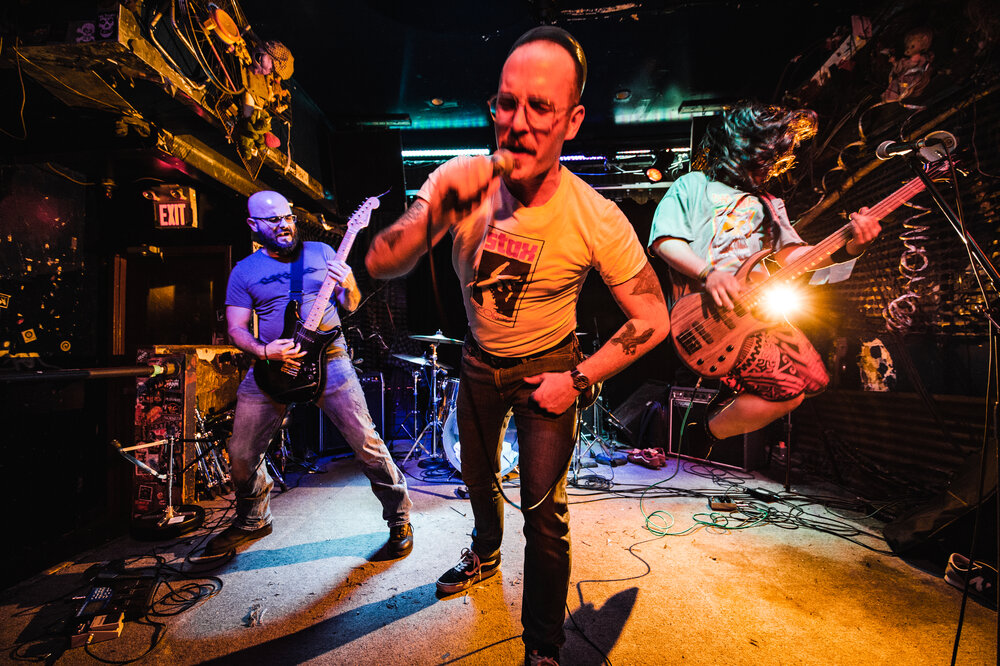
CD says that while the way they make music and jam together hasn’t changed too drastically, the pandemic has pushed the band to connect to their fans deeper through their social media accounts. He notes that pre-pandemic, the band would occasionally post information pertaining to upcoming shows or to thank their fans, but now their social media accounts have been receiving a lot more effort from their end.
“We’ll dig up some old commercial or movie that is somehow slime-related every one or two weeks and post that on our Instagram. We’ve also been posting some of our own playlists to show our fans the variety of influences we have and to showcase some other local bands that we think deserve more attention.”
Artificial Alien: With Josh Buckley on bass, Danny Dags on vocals/guitar, and Mike De Lima on drums, Artificial Alien’s unique sound is a mix of grunge and hard rock. Forming in 2016 out of basement jam sessions, the band has performed across the underground scene, from Absinthe pub and Sneaky Dee’s to Lee’s Palace charity event Punk 4 Paws.
Buckley notes that the band has attempted holding live shows on Instagram, though it never felt quite right. The songwriting process for Artificial Alien hasn’t stopped, but the issue now comes with composing amid the current pandemic restrictions.
“At this point, we just hope our fans are doing well, that the tunes are helping when they’re down, and keeping the positive energy when they’re rocking,” says Buckley.
The community’s hopes for live music’s unknown future
While it’s easy to say that performing live will have to make many switches to return safely, we don’t exactly know the extent of how Canada’s music industry will find its way back to the stage.
Popular ticket distributor Ticketmaster announced in November 2020 that for their future live events, the company will be setting up a mobile vetting process so that concert goers can only enter if they have been vaccinated, providing a glimpse into the future of live concert experiences.
The Slime’s CD says while he’s worried about the restrictions that are bound to come with modern day moshing, there is hope after looking at Australia’s seemingly return to normalcy for their shows. Australia has all but eradicated the virus within the country, with vaccinations being carried out right on schedule — a feat that cannot yet be attributed to Canada.
With Canada’s rather slow start to the vaccination process, the possibility for live shows just seems to slip further and further away.
“I believe in the short term, certain protocols will stay in place. But as the numbers recede and the vaccines are done, we will see a return to normalcy,” hopes Lee’s Palace’s Bennett. “This may take some time, but there are a lot of people out there that miss the live experience.”
Elmaleh says that while everything at this point is contingent on Canada’s vaccination schedule, he disagrees with the notion that when it comes to live performance, nothing will be the same again. “People want to go back to the way it was, people are ready to return to venues once it’s safe. I know our first few shows back are going to be something truly special, and I’m sure every band can say the same.”
Cigar Club’s Booth infers that we can expect to see an influx of live-streamed events, even after many of the safety restrictions are lifted or revised, as “people will actively be looking for new ways to host music events in safe accessible ways.”
“I think we can expect, once places start opening up, that we will see venues have a limited capacity and still try to keep some of the social distancing measures in place until people start feeling comfortable again being in close contact with random strangers,” says MAS’ Blundell. “I think when shows start up again, there will be a reluctance to fully embrace the experience, but it will just be exciting to play and be with other people — even if it is at a bit of a distance.”
But with the need for initial distancing comes the question on every metalhead’s mind…
What about moshing?
Alright, so quick crash course. Moshing takes place in the mosh pit of many metal, punk, and hard rock shows. It’s essentially an intense dancing met with roughhousing, meant to help concert goers both relieve steam and get into the music. There are various kinds of pit experiences you can have, from stage diving, slam-dancing, to potentially experiencing some violent hits.
But if someone falls in the pit, everyone is meant to help them get right back up before they can keep the party going. Metaphorical, don’t you think?
Moshing is an integral part of the metal experience, to the point of where shows would be incomplete without craziness of the pit. So, will we ever mosh again? According to McCann and Chadderton, the short answer is yes, but it’s just a matter of when.
“Best guess I’ve got is it’ll be one of the last things to return, but it’s also going to be one of the hardest things to prevent from happening,” McCann supposes.
“Odds are even with a required amount of space between people, as soon as floor areas open up (technically immediate for many venues, but can be stalled in some larger venues), there’ll be people trying to push the boundaries again just like with people crowd surfing over the barrier separating stage from floor. That’s not going to be a good thing, but objectively speaking it’s something that most likely will happen.”
Buckley notes that with reopening venues on a local level, hand sanitizing and temperature checks at the door will have to be the mainline for COVID-19 detection, as many of Toronto’s local bars and pubs don’t have the luxury of being able to keep everyone six feet apart and mosh free.
“I think that will be the best they can do because seldom is there seating, and it would take away the magic of these styles of shows if you have mosh two metres apart. I know I can’t wait to jump off stage into the pit again sometime soon!”
It’s hard to know for sure what the future of live rock and metal holds. But if one thing is certain, it’s that the long-awaited return to the stage will be much like music itself: loud, intense, all encompassing, and absolutely unapologetic.


